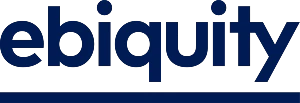If a week is a long time in politics, it’s an eternity in the dawning reality of coronavirus. We often observe that media and marketing are changing today at an electrifying pace, making it hard for brands to keep up. And yet the evolution of our ecosystem is nothing compared with the speed and rapid developments of the first pandemic of the social media age and the first since 1918. Blink, and whole countries are locked down. Wake up, and flights between the U.S. and continental Europe have been suspended overnight. Look the other way and Ireland closes its schools for weeks. One thing is clear: Covid-19 is having real human consequences, and as a business we are taking our actions seriously to protect the health and well-being of our staff, our clients, and – to the extent that we can – society at large.
At Ebiquity, a lot of our clients are asking what coronavirus means for them in terms of their media and marketing plans. They’re asking what the risks and opportunities may be – short-term and long-term. And they’re asking what – if anything – they should do differently. As the past two months have shown, very little is certain. But in response to those client questions, I thought I’d have a go at bringing together a number of thoughts and discussions I’ve been having over the past few weeks.
Looming recession?
One of the paradoxes of where we are today is that there’s both a huge amount of data (e.g. about rates of infection and transmission) and yet at the same time so little (e.g. about the impact on marketing and sales performance, let alone the broader economy). There have been many recessions over the past hundred years, and we know for sure that it makes both short- and long-term sense for brands to continue advertising during a recession. In the case of a coronavirus slowdown, though it seems certain to bring a recession with it, we will never have experienced a recession like it. A recession that will be caused in part by curfews, lockdowns, and people not physically going to places – like shops, restaurants, and cinemas – where they spend money. For many businesses this is not simply a slowdown, but a meltdown.
Category impact
The impact of the pandemic is likely to vary dramatically by category. Take airlines, for instance, who will now have to shut down many of their most valuable routes across the Atlantic for at least a month. Norwegian Air, for instance, has announced it has cancelled 4,000 flights and will temporarily lay off half of its staff as a direct result of the virus.
Household staples – which make up a large proportion of sales in the grocery sector – should withstand the impact. Many may perform incredibly well. Indeed, misinformation has led in many parts of the world to panic-buying of staples including toilet paper, dried pasta, and tinned tomatoes. Cleaning products – particularly bleach and alcohol-based hand sanitisers – prepared meals, and some snacks will undoubtedly stand to benefit. Demand for delivery by online grocers – the major multiple retailers and affiliated services including Ocado – is already way outstripping supply. Telecommunications are well-positioned as people travel less and shift to remote working.
Bricks and mortar retailers are likely to feel a significant impact. If more and more people choose not to venture out – either because they’re self-isolating or because they want to avoid having to self-isolate – the high street will suffer. So will restaurants, cinemas, and theatres. Tickets for Broadway shows such as Hamilton that went for more $1,200 a ticket until quite recently are now available for less than $50. Sporting events – the Cheltenham Festival notwithstanding – are being cancelled, postponed, or played behind closed doors. And holiday destinations face a period of prolonged uncertainty, with the only likely winners being Amazon and other online retailers. The DIY category – the home improvement “sheds” as they call themselves – face a bleak year. The five U.K. bank holidays that cluster around Easter are often a make-or-break time of year for these retailers; for them, Easter is Christmas. 2020 will likely be a write-off and a case of damage limitation.
Media impact
Brands that can still trade – either because they own their own means of distribution or can be distributed via the online retailers – actually have a significant secondary opportunity to build their brand, as more consumers are home and media consumption rises. More time spent watching TV means more eyeballs on TV ads, both linear TV and broadcaster video on demand. Digital media is also poised to do well, as people occupy themselves with online platforms. Meantime, out-of-home, radio, and cinema are the media that are most likely to see a downturn as a result of decreased freedom of movement, of fewer people being out and about. Indeed, shares in cinema operator Cineworld slumped 24% in a single day on the news that the release of the 25th Bond film, No Time To Die, was being put back to the autumn. So, while the impact may only be felt directly for a matter of weeks, those weeks out may remove a year’s margin or more and cripple profitability.
Creative sensitivity
Brands do need to be careful about their creative and messaging. In the U.S., confectioner Hershey’s has just pulled ads that feature handshakes and hugs, as this obviously doesn’t send the right signal while Governments and health authorities are encouraging “social distancing”. Meantime, in the U.K. quick-service restaurant KFC launched a major new campaign at the end of last month called “It’s good”, going back to its heritage slogan, “It’s finger-lickin’ good”. In the 60-second TV spot, we see a stream of happy consumers enjoying KFC and then … licking their fingers. Huge billboards feature stills from the ad, with the words “ITS” and “GOOD” either side of satisfied faces, licking their fingers.
As the blog Decision Marketing said just three days after the campaign broke: “In advertising, much like life itself, timing is everything.” The work, by Mother, is beautiful and emotional. It’s just that timing is poor. You may remember that KFC bounced back from an existential threat in 2018, when a contract with a new logistics partner meant that hundreds of its restaurants in the UK ran out of its signature ingredient: chicken. The “FCK, We’re Sorry” campaign is now a textbook case study of how to apologise with humour and humility. We should probably assume that the same crack team that created “FCK, We’re Sorry” is already burning the midnight oil.
An off season for conferences
Now is not a good time to be in the conference business, and it’s the same for marketing and advertising events. The list of industry events that have been cancelled or postponed grows by the day. SXSW in Austin Texas (March), Advertising Week Europe (delayed til mid-September), WFA World Marketer Week in Singapore (pushed back a year until April 2021), I-COM in Spain (from May until “after Summer 2020”). The Drum has published a comprehensive list of events that are now off. The big software and social media platforms are also falling over themselves to cancel their developer events, including the Adobe Summit, Google Cloud Next, and Facebook’s F8.
Brands should think about how their employees can continue to learn and engage with the industry, and with industry issues, while working remotely, or while company bans on attending such events are in place. We’re exploring how we can use webinars, blogs, and video conference technology to continue supporting our clients through the crisis.
A changing working day
As companies face up to the new reality – however temporary it proves to be in the end – the working day is likely to change for many. Working from home won’t just be an opportunity or a luxury, it’ll be a necessity. For many, it already is. Self-isolation and office shut-downs, voluntary or enforced, will test to the breaking point the capacity of knowledge economy businesses’ IT infrastructure to carry on in times of crisis. Corporate subscriptions to Microsoft Teams, Zoom, and other virtual meeting platforms will suddenly seem like great value. Fortunately, we were one of Zoom’s flagship clients when they launched in the UK, and we’re proud of investing in cutting edge remote working technology.
Agencies and consultancies will need to innovate how they communicate with their clients and their teams. I’m not saying this is any kind of a silver lining, but there’s more than a note of optimism in my colleague Sriram’s blog on the topic, linked here, recounting his current experiences in China. It’s titled “Coronavirus confinement: con calls, chicken curry, chin-ups”. It’s well worth a read.
Caveat lector
I’m, conscious that any or all of these predictions and observations could easily be overtaken by events. But I hope at least that you’ve found them to be an interesting diversion and in some way helpful.
Stay safe and healthy. We’re here to help in any way we can.

